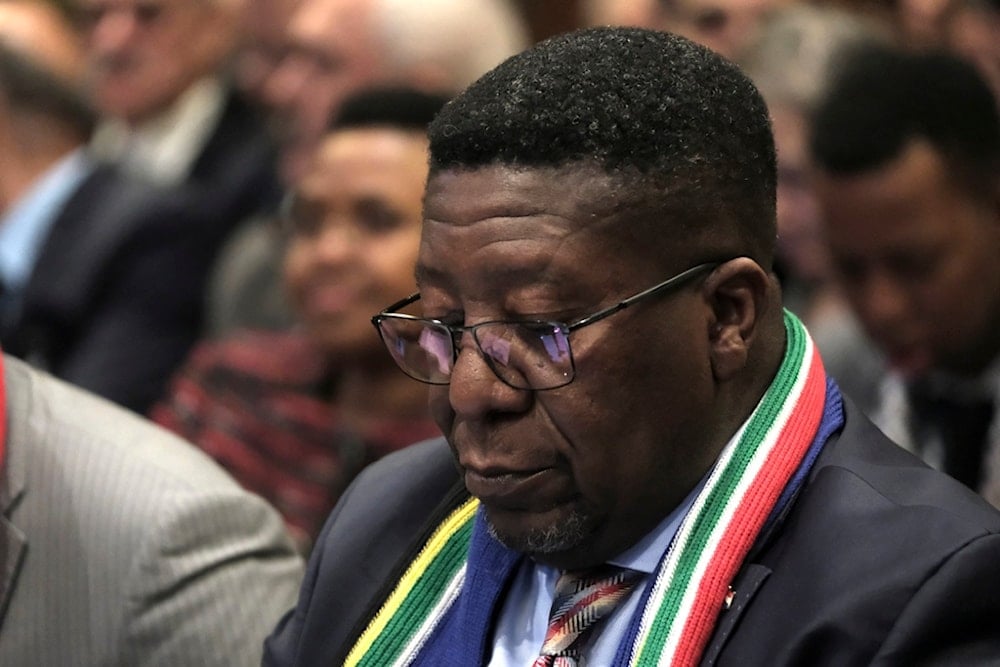'Israeli apartheid worse than what South Africa endured': ICJ hearings
South Africa's ambassador to the Netherlands shares his country's obligation to defend Palestine from Israeli apartheid and colonialism at the ICJ.
-

Ambassador of the Republic of South Africa to the Netherlands, Vusimuzi Madonsela, sits during a hearing at the International Court of Justice in The Hague, Netherlands, Friday, January 12, 2024 (AP)
In a continuous show of pro-Palestine solidarity, South Africa slammed "Israel's" apartheid in Palestine as worse than the one it experienced pre-1994, at the International Court of Justice on Tuesday.
"We as South Africans sense, see, hear, and feel to our core the inhumane discriminatory policies and practices of the Israeli regime as an even more extreme form of the apartheid that was institutionalized against black people in my country," said South Africa's ambassador to the Netherlands, Vusimuzi Madonsela, at the top court.
Madonsela added that the Israeli apartheid, being a crime itself, is simultaneously and fundamentally settler colonialism that South Africa felt obligated "to call out and end."
The ICJ is conducting hearings throughout the week to assess the legal consequences of the Israeli 75-year-long occupation, with the court focusing specifically on the past 57 years of the occupation, beginning in 1967, with an unprecedented 52 nations, including the United States and Russia, expected to present evidence.
Anti-colonial sounds at the ICJ
Palestine's top diplomat Riyad al-Maliki called on the court's judges yesterday to declare the Israeli occupation illegal and "immediately, totally and unconditionally" bring it to an end.
"The Palestinians have endured colonialism and apartheid... There are those who are enraged by these words. They should be enraged by the reality we are suffering," al-Maliki said.
During the session, al-Maliki warned that "justice delayed is justice denied, and the Palestinian people have been denied justice for far too long," adding that "it is time to put an end to the double standards that have kept our people captive for far too long."
Al-Maliki then stressed that "the genocide underway in Gaza is a result of decades of impunity and inaction," reaffirming that "ending Israel's impunity is a moral, political and legal imperative."
Systems of ruling
It is noteworthy that the ICJ has been tasked with examining the repercussions of what it characterizes as "Israel's" "implementation of discriminatory legislation and measures." This is different from Pretoria's other class action lawsuit against the Israeli genocide in Gaza, which was concluded with orders to safeguard civilian lives in Gaza and avoid genocidal requisites by the Israeli occupation.
The current anti-apartheid case is an extension of the requested guidance the UNGA asked the ICJ to weigh in on regarding the "legal consequences arising from the policies and practices of Israel in the Occupied Palestinian Territory, including East Jerusalem".
In this case, the ICJ provides legal insight, which is not binding in nature. However, although the ICJ's verdict is binding, it is not always tangibly enforced. Regardless, its authority, although not tangibly effective, magnifies international pressure to enforce certain resolutions regarding the dispute at hand, in this case, the Israeli crushing occupation and its effect on Palestine.

 3 Min Read
3 Min Read








